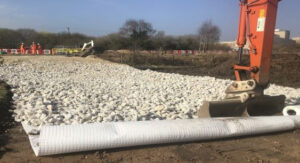Cheshire East Council is to host a drop-in session where people can learn more about potential measures that could be introduced to make some urban areas of Crewe more attractive, and create better routes for those walking, cycling, or using public transport.
The council is one of 19 local authorities that has received funding from the Department for Transport’s ‘Mini-Holland’ programme to carry out a feasibility study in an area to the south-west of Crewe town centre.
At the end of November, a consultation was launched asking local residents, business owners and people who travel or work around the area what they think the challenges currently are, and the potential measures they think could be put in place through this scheme to resolve them.
Before the consultation closes in the next couple of weeks, the council is inviting people to a drop-in session at Crewe Lifestyle Centre, which will take place in studio one on Saturday, 21 January from 10am-4pm.
 Councillor Craig Browne, chair of Cheshire East Council’s highways and transport committee, said: “Mini-Holland schemes improve how streets are used and aim to make them as pedestrian and cycle-friendly as their Dutch equivalents.
Councillor Craig Browne, chair of Cheshire East Council’s highways and transport committee, said: “Mini-Holland schemes improve how streets are used and aim to make them as pedestrian and cycle-friendly as their Dutch equivalents.
“Through our consultation we have already received some invaluable feedback and suggestions, and I would like to thank all those who have taken part.
“By holding this drop-in session, we hope to hear from even more people and those that attend will be able to speak to members of our project team, who will be on hand to answer any questions they may have.”
The area in which we are looking to identify a scheme lies between Victoria Avenue in the north, and Gresty Lane, Shavington in the south, and includes Woolstanwood, Wistaston Green, the area around Cheshire College South and West, and streets leading off from Mill Street.
The range of measures introduced through schemes elsewhere in the country have included creating new and attractive public spaces and redesigning streets, the benefits of which include reducing people’s dependency on using their car, which in turn reduces pollution, traffic and congestion.
The schemes have also seen streets transformed into places where people can interact and socialise, have supported local regeneration programmes, and have made it safer for residents to make more localised journeys, such as to work or to access healthcare services.
No specific proposals are being put forward at this stage for how a scheme could be introduced in Crewe.























